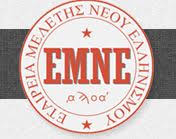Despina Iosif, «Christianos ad Leonem». The Case of Perpetua Two Greek editions of the diary of Perpetua have recently appeared, one by Polymnia Athanassiadi and the other by Thanassis Georgiadis, both bound to attract attention. Perpetua lived at Thuburbo Minus, west of Carthage in North Africa. She was an upper class, well-educated Roman citizen, twenty-two years of age, newly married and mother of a baby boy, who converted to Christianity and chose martyrdom instead of sacrificing to the traditional gods of the Roman Empire. Her decision was interpreted as an insult to the gods and the emperors, and a direct challenge to the established order and resulted in her being sentenced to death to the beasts of the arena in Carthage in 203 CE. It was a well-established Roman belief that the traditional gods offered military victories, stability, prosperity and grandeur to the Roman people. In return and to secure the continuation of this benevolence, the Roman people carried certain strictly defined rites in honour of their gods. Pagan religion was less a matter of personal devotion than of national significance. The Christians despised the traditional gods, declaring that they did not exist or that they were malevolent demons and neglected or obstructed the traditional religious rites. This conduct disrupted the agreement the Romans had made with their gods and made the empire vulnerable. From the second century on, natural disasters were being attributed to the wrath of gods as a result of the Christian atheism and the hatred Christians allegedly had for the world. It is extremely fortunate that Perpetua's diary, which she kept while in prison awaiting her death, has survived. It is a bold, vivid and honest account of her prison life, her dreams and the hopeless efforts of her father to persuade her to conform and sacrifice. The fact that the text praised prophesy and placed martyrs above the established church hierarchy led scholars to believe that is was a Montanist product. Fourth and fifth century bishops felt uncomfortable with Perpetua's diary and surrounded it with homiletic commentaries. Instead of letting the text speak directly to the community of the faithful, they guided the understanding of words, subtly changing its messages, and controlled its dissemination. They made Perpetua less appealing as a role model and less threatening to the social order. The impression and fascination her diary exerted, however, remain unchanged.
(EL)
Despina Iosif, «Christianos ad Leonem». The Case of Perpetua Two Greek editions of the diary of Perpetua have recently appeared, one by Polymnia Athanassiadi and the other by Thanassis Georgiadis, both bound to attract attention. Perpetua lived at Thuburbo Minus, west of Carthage in North Africa. She was an upper class, well-educated Roman citizen, twenty-two years of age, newly married and mother of a baby boy, who converted to Christianity and chose martyrdom instead of sacrificing to the traditional gods of the Roman Empire. Her decision was interpreted as an insult to the gods and the emperors, and a direct challenge to the established order and resulted in her being sentenced to death to the beasts of the arena in Carthage in 203 CE. It was a well-established Roman belief that the traditional gods offered military victories, stability, prosperity and grandeur to the Roman people. In return and to secure the continuation of this benevolence, the Roman people carried certain strictly defined rites in honour of their gods. Pagan religion was less a matter of personal devotion than of national significance. The Christians despised the traditional gods, declaring that they did not exist or that they were malevolent demons and neglected or obstructed the traditional religious rites. This conduct disrupted the agreement the Romans had made with their gods and made the empire vulnerable. From the second century on, natural disasters were being attributed to the wrath of gods as a result of the Christian atheism and the hatred Christians allegedly had for the world. It is extremely fortunate that Perpetua's diary, which she kept while in prison awaiting her death, has survived. It is a bold, vivid and honest account of her prison life, her dreams and the hopeless efforts of her father to persuade her to conform and sacrifice. The fact that the text praised prophesy and placed martyrs above the established church hierarchy led scholars to believe that is was a Montanist product. Fourth and fifth century bishops felt uncomfortable with Perpetua's diary and surrounded it with homiletic commentaries. Instead of letting the text speak directly to the community of the faithful, they guided the understanding of words, subtly changing its messages, and controlled its dissemination. They made Perpetua less appealing as a role model and less threatening to the social order. The impression and fascination her diary exerted, however, remain unchanged.
(EN)

